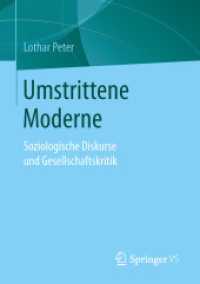- ホーム
- > 洋書
- > ドイツ書
- > Social Sciences, Jurisprudence & Economy
- > Politics, Society, Work
- > social science
Full Description
In many fields of professional practice and research, conversations can no longer be conducted in the first language of the respective participants.








